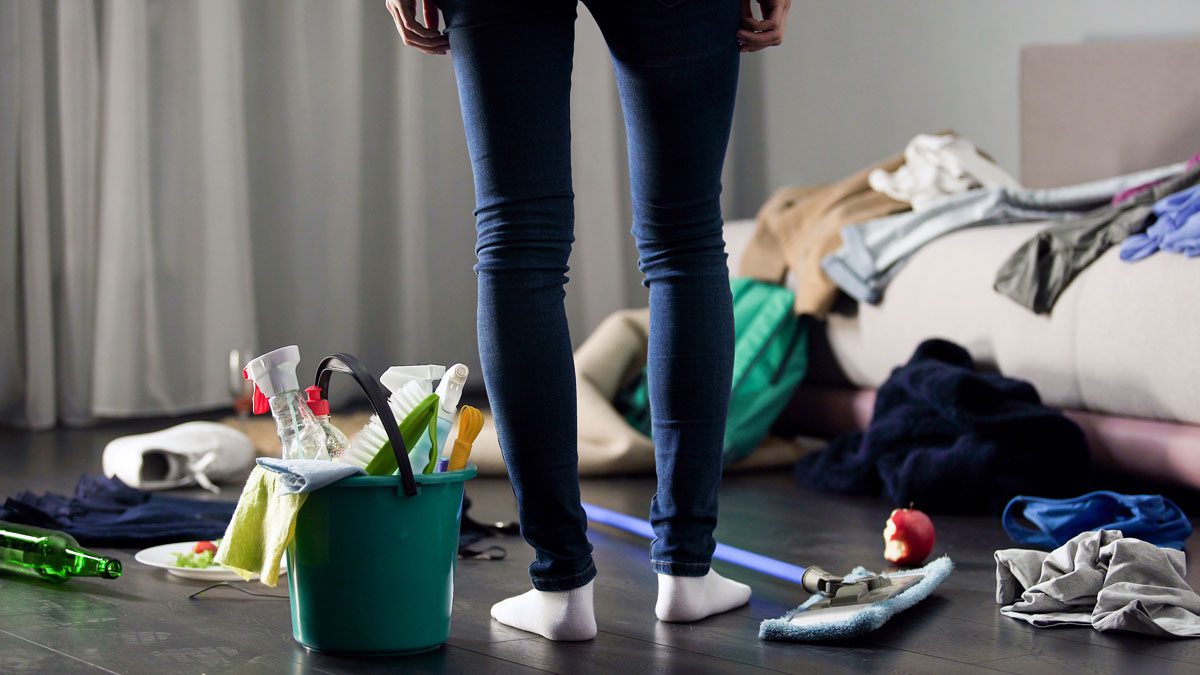Consider the following story as it relates to this week’s topic.
Over the past year, my husband and I have noticed that our kids are procrastinating more and more. They usually do their homework late in the evening, wait until the weekend to clean their rooms (even though they’re supposed to do it every Wednesday), and sometimes miss the bus because they’re taking too long picking out school clothes for the day. Neither of us know how to get our kids out of the procrastinating mindset. It seems like they’d much rather play video games or mess with their phones all evening. What can we do?

Understanding Procrastination
Almost everyone puts things off until tomorrow when we could easily do them today. Yet, it isn’t uncommon for parents to chalk up procrastination in their kids to laziness or low motivation. While these may be factors, you have to remember that there are other potential causes such as:
- Trouble managing emotions, like anxiety
- Trouble picturing the future
- Boredom
- Low self-discipline
- Poor time-management
- Fear of failing
- Having an ADHD-mind (although this blog does not focus on this specifically, all content is highly applicable)
The best way to understand where your kids are coming from is by talking to them. Let them know you are offering support and that you’re concerned their procrastination may become a habitual behavior.

Feeling Good Here and Now
When we put things off, we assume that we’ll feel more inclined later to doing the thing we are avoiding. But, how often is that really the case? And some people think that better planning is the key to solving procrastination; however, while good planning can help, even good planners can struggle.
Sometimes it feels preferable to avoid doing the hard stuff because it’s uncomfortable for us to have to struggle. So, we’d rather do something more enjoyable, something that provides instant gratification. The same can go for your kids.
Research has shown that the part of the brain that gets activated when we think about strangers is the same part that we use to imagine ourselves in the future. And you know how it’s sometimes hard to care about how strangers feel because we don’t know them? Well, we also sometimes disregard how we will feel about ourselves if we don’t complete our responsibilities in time and have to show up to school or work unprepared. A secret about procrastinators is that they often do what feels good to them at the time because they have a harder time picturing how they’ll feel in the future.

Motivation Follows Action
A wise person told me that “motivation follows action.” This flies in the face of waiting to do a task until you feel like it. In order to “feel” like doing something, you’ll have to actually start doing it!
Some other reasons that people procrastinate are related to having negative thoughts about oneself or their task. For example, students tend to procrastinate if they believe that they are poor spellers and/or have difficulty organizing their thoughts.
Add trouble picturing how they will feel when a deadline arrives if their task is not complete, and you have a recipe for procrastination. Doing something else that provides instant gratification can seem much more appealing and easier.
Unwanted Feelings
Here is something you may not know. Folks who procrastinate tend to experience a great deal of shame, guilt, and anxiety. So even though the chronic procrastinator may want to complete their work or chores, it’s so hard for them to get out of their own way.
And as you may already know, logic, problem-solving, and better planning are not enough to help them. Learning to understand and manage emotions is at least half the battle for procrastinators.

Getting it Done
Now, going back to our kids, whether they need to do their homework, mow the lawn, or do other chores, there are some steps to help them avoid procrastination. You don’t have to do all of these every time and not necessarily in the same order, but they will hopefully be useful:
- Compassion: Be self-compassionate and kind. If you catch yourself procrastinating, forgive yourself and teach your child to do the same. Noticing it is the first step to dealing with the problem.
- Picturing the Endpoint: Teach your child to imagine how they will feel by not completing a task. It might be worth the discomfort of actually doing it for the reward of feeling good at the end!
- Brain Dumping: Have your child get all of what they must do out of their brain. Organizing isn’t important at this stage.
- Prioritizing: Once it’s out there, on paper, have your child do some prioritizing. “What has to get done today? What’s most important? Are there some big things that can be broken down into smaller, bite-sized pieces so that you won’t feel so overwhelmed?”
- Reflecting: Once they know what their priorities are, they should step back and think about their feelings for a moment. Have them imagine being at the deadline and asking how they want to feel and what it will take to get there.
- Organizing: Transfer their tasks into lists so that they have a blueprint of what to do to avoid standing around feeling lost and not knowing where to begin. For instance:
- (1) Do your homework.
- (2) Vacuum your room.
- (3) Wash the dishes.
- (4) Take the trash out.
- (5) Sort your clothes out for school tomorrow.
- Thinking Small: If your child has big tasks like a report to write, a project to complete, or a lot of homework or studying, have them break it all down into bite-sized pieces. A wise mentor once told me that I could probably do just about anything for five minutes. So, I’ve learned to break tasks down into small sections and set a timer based on my estimated completion time with the expectation that I can do anything in that timeframe.
- Estimating Time: Have your kids think about the time it will take to complete a task. This can help compartmentalize and make chores more “doable.”
- Choosing a Starting Point: This may mean prepping your child’s desk for homework or having them change out of their school clothes for chores. Setting a launch pad for a task can really make a difference in getting things done. You can also do this for yourself!
- Starting: That’s right, just do it!
- Low-Hanging Fruit: Have your kids start with something manageable and build on that success.
- Breaks: Plan a few short breaks in between each task, but make sure your child knows which task they’ll come back to once the break is over so they can prepare themselves.
- Be a Cheerleader: Remain supportive throughout the whole thing. Even if they only finish 80% of their tasks, your support will mean the world to your kids.
GoZen! has a pretty useful resource that can help you with your procrastinating child.
Come See Us
There will be times where you’ll want to discuss what you’re currently going through with someone else. This is where Rice Psychology Group comes into play. Our licensed psychologists and mental health counselors in Tampa are ready to listen to your story. For more information about our services, contact us today.

